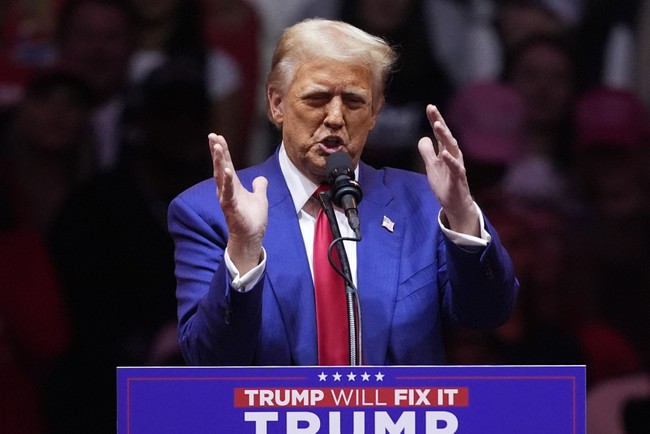Impact of Trump's Assassination Attempt on US Elections
An intricate look at the implications and reactions following the failed assassination attempt on Donald Trump during the heated presidential race.
Published July 17, 2024 - 00:07am

Image recovered from alhurra.com
The attempted assassination of former U.S. President Donald Trump has significantly impacted the ongoing presidential race, which pits him against incumbent President Joe Biden. This dramatic event occurred amid the intense rivalry between their campaigns, just as Biden seeks re-election for a second term.
In this political showdown characterized by severe criticisms, the incident has led to a reassessment of campaign strategies. Joe Biden's campaign has been particularly vocal in depicting Trump as a threat to the nation, often referencing the January 6, 2021, Capitol riot as a critical point of contention. However, the assassination attempt during a Pennsylvania rally has led experts, such as former Assistant Secretary of Defense Larry Korb, to suggest that Biden's rhetoric might soften to avoid being perceived as inflammatory.
The immediate reaction from Biden was to denounce the violence and express relief over Trump's recovery. Biden emphasized the importance of unity and ordered an investigation into the incident, urging a review of security protocols for the upcoming Republican National Convention in Milwaukee, where Trump is expected to be formally nominated as the Republican candidate.
In parallel, Republican strategist Eli Bremmer highlighted that the conversation around the political landscape would now likely focus on the attack and its implications. This shift could potentially benefit Trump by rallying support and invoking sympathy, much like the surge in popularity experienced by former President Ronald Reagan following an assassination attempt in 1981.
Bloomberg analysts underscored the complexity Biden's campaign faces, suggesting that political violence undermines efforts to promote stability—one of Biden's primary pledges. This violence-driven narrative might bolster Trump's support, mirroring historical precedents where targets of political violence gained increased backing from the electorate.
Biden, meanwhile, navigates a complex landscape of maintaining campaign momentum without appearing insensitive to Trump's plight. This cautious approach was echoed in his direct interactions with Trump, where he reaffirmed his stance against violence and called for a thorough and swift investigation by federal authorities.
Trump's campaign interpreted the attack as a direct consequence of the hostile and inflammatory language used by Biden and his allies. Several Republican figures, including Ohio Senator J.D. Vance and Georgia Representative Mike Collins, accused Biden of fostering a climate of violence against Trump. These assertions were amplified by Republican-affiliated social media accounts, aiming to galvanize their base by painting Biden as complicit in the violence.
The aftermath of the assassination attempt has influenced both sides of the political spectrum, with Biden's team reconsidering their strategic approach. They are likely to focus criticisms on Trump's policies rather than personal attacks, aiming to present a more measured and responsible image. Yet, Trump's alignment with themes of persecution and resilience likely fortifies his narrative of a nation in turmoil under Democratic leadership.
First Lady Jill Biden's outreach to Melania Trump following the incident symbolized a call for civility amid political discord. This gesture illustrated an attempt to bridge divides and underscore a commitment to human decency above partisan conflicts.
Overall, this assassination attempt has introduced new dynamics into the presidential race, influencing campaign strategies, voter sentiments, and public discourse. As both candidates navigate this altered landscape, the stakes for ensuring a peaceful and democratic electoral process remain higher than ever.







